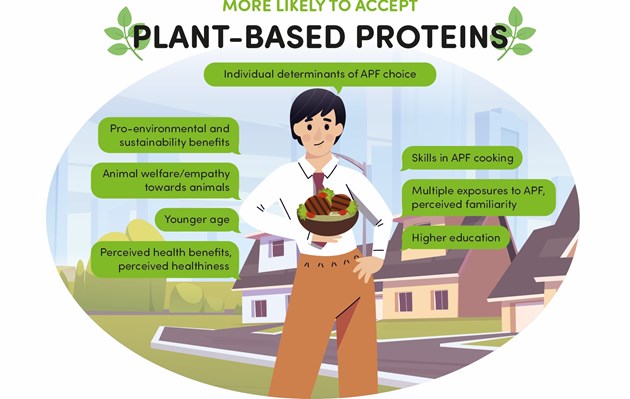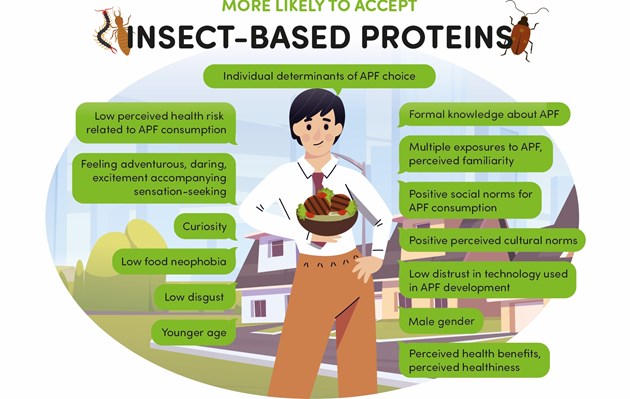
Imagine you enter the grocery store: what do you usually buy? A beef burger or would you choose the plant-based options? This decision seems to be influenced by numerous factors.
Researchers from SWPS, The American College of Greece Research Center (ACG-RC), CSCP, MØREFORSKING and University of Bologna have been delving into what drives consumers to choose alternative protein foods (APF). They have conducted a meta-review to take a closer look at which psychosocial determinants are connected with people’s choices.
Firstly, it explored which individual factors play a role in shaping our decisions. This includes things like skills, perceived opportunities, and motivations. But the individual factors are not the only things that matter here – sociodemographic factors like age, gender, education, and income also come into play. The review also investigated how these factors link to our actual choices, this can be anything from our intentions to eat or buy APF to how much we are willing to pay for them or even how accepting we are of these alternatives. With this review, we hoped to gain a better understanding of why some of us are more drawn to APF than others.
When it comes to choosing plant-based alternative proteins it turns out that a lot of different factors play a role here. First of all: your skills and experience matter. If you already possess great cooking skills or if you are familiar with APF you are more likely to try them. Additionally, if you are motivated by health or environmental concerns, or if you care deeply about animals’ wellbeing you are also more inclined to choose plant-based options. Also, younger people and those with higher education tend to be the ones who search for plant-based alternatives more often.

Now, let’s take a closer look at insect-based APF determinants. Just like with the plant-based options, knowing a bit about these alternatives and already being familiar with them can make a huge difference. Beyond that, having a positive outlook on social and cultural aspects of eating insects, and not being skeptical also can nudge people towards tasting them. Health and sustainability beliefs are important motivators, but also elements of excitement and curiosity play a big role.

So, whether it’s plants or insects, our choices are shaped by a mix of skills, beliefs, and societal norms. Maybe one day you will find yourself reaching for a cricket protein bar without hesitating!